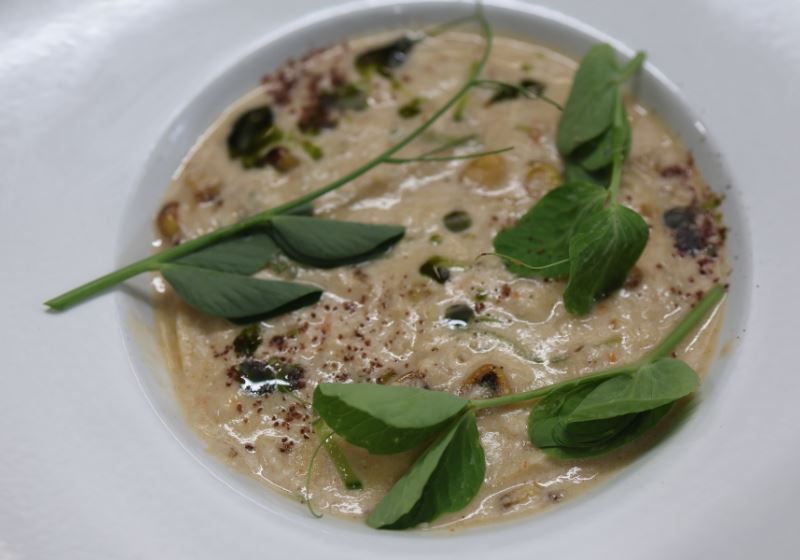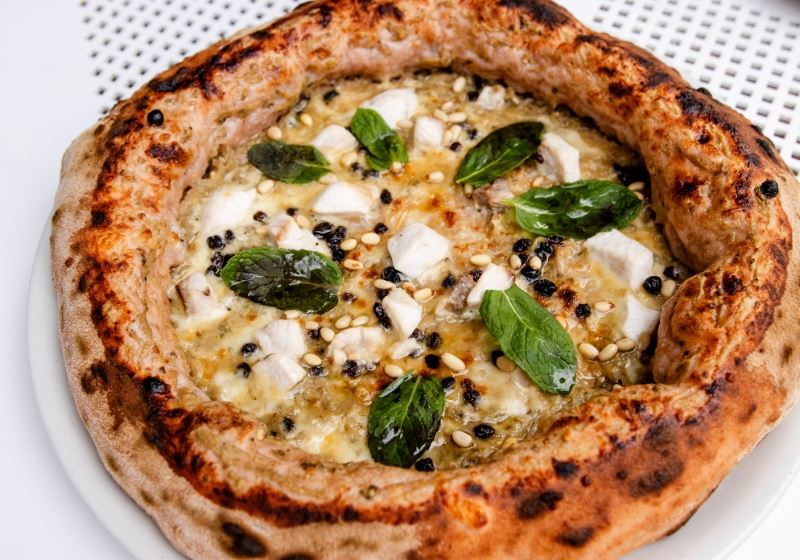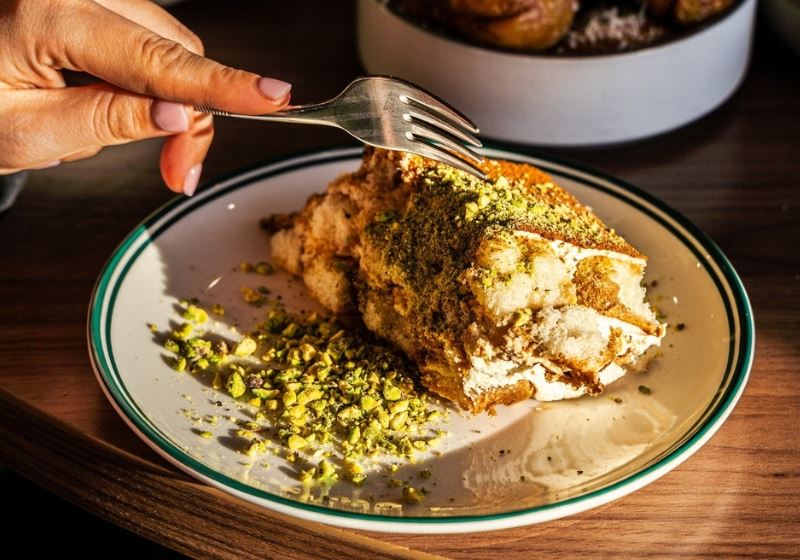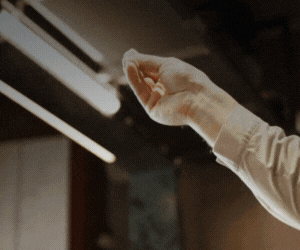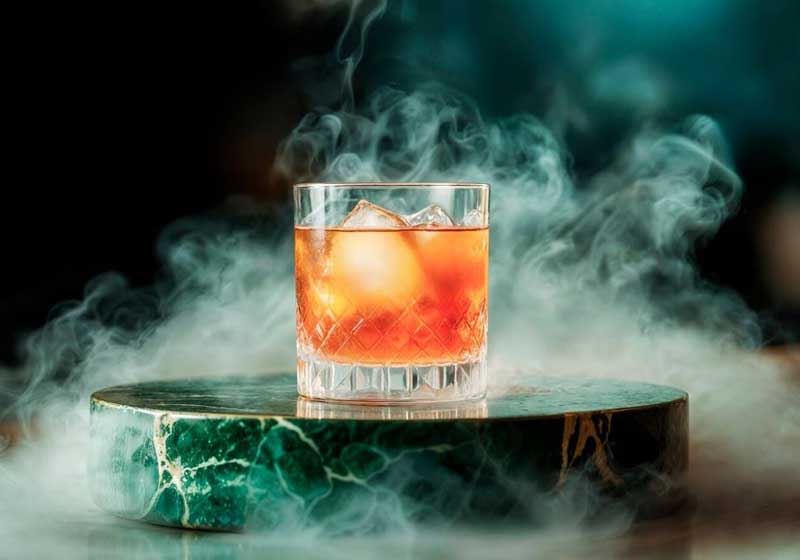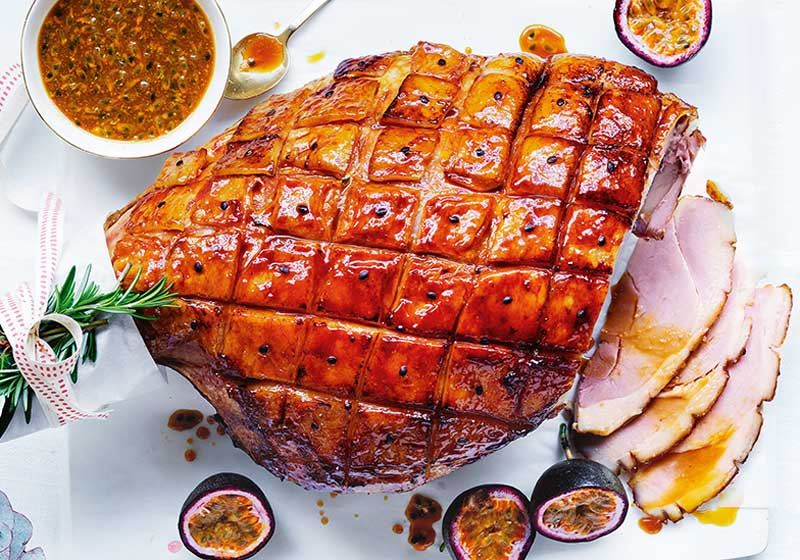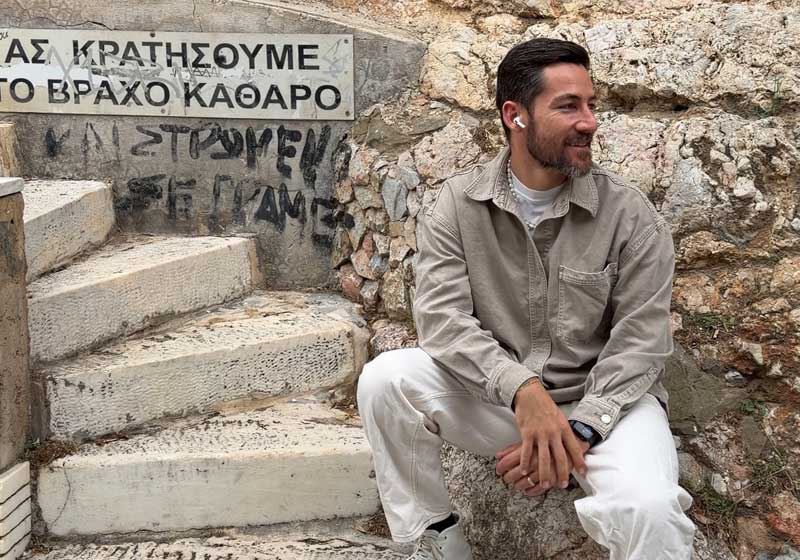Long considered one of Australia’s top restaurants and the brainchild of Chef Dan Hunter, Brae is guided by the principles of locality, sustainability and seasonality.

If it’s not sustainable…it won’t be on the menu at Brae and in the words of Dan, being sustainable is an obvious choice.
"It seems obvious really. If you work with food and flavour you probably want the food to be the best version it can be and also the most flavoursome. Particularly with fruit and veg but it’s pretty hard to argue with the quality of flavour when you taste a just picked organic version of something over a cold stored chemically raised product, and after that, I want to eat and serve food that is healthy to eat and raised with consideration to the health of the land it came from, says Dan.
"You know, this is a farm. I always come back to that. I think today more than ever I'm letting the values that we set within the business, guide the cooking more than the cooking guide the future values."

A highlighted dish from menus past: Muntries and southern calamari with wild cabbage and fermented radish.
Perched on a hillside amongst 30 acres of lush organic farmland south of Geelong, the restaurant and onsite guest suites use solar energy and harvested rainwater; all waste is recycled, there have never been plastic straws or takeaway coffee cups and compostable bin liners are used wherever possible.
Every menu at Brae has two lives – used menus are saved, cut to size and the paper made into guest note pads for the accommodation suites. Then there’s the food… the property produces its own organic vegetables, stone fruit, citrus, nuts, berries and olives for use in the kitchen, resident chickens supply free range eggs and bees produce honey and assist with pollination.
All of this, plus only using suppliers who are screened for their environmental and social responsibility led to Brae rating second in the world to Azurmendi in Spain for the World’s 50 Best Sustainable Restaurant Awards in 2018.
"We aim to reconnect our visitors to their food and the place it comes from and to achieve this we maintain a close connection to our region and our land,” says Julianne Bagnato, Brae’s Operations Manager.
"We offer guests an immersive experience where they can learn how the food they eat is grown and spend time on the land it comes from.”
Brae practises chemical-free production and uses regenerative farming techniques to restore the land – alongside quality service, creativity and exceptional food; while the wine and alcoholic beverage list focuses on producers who favour minimal intervention and practise organic principles.

Dan's Sommerlad chicken dish.
Dan’s Sommerlad chicken dish is an ideal example of how this transfers to the plate. Sommerlad is a robust, slow-growing Australian heritage breed chicken, specifically developed to thrive in our conditions. The birds are raised ethically, slowly and organically at Milking Yard Farm in Trentham, where the welfare of the animals, people and the environment are the priority.
The dish utilises the whole bird – roasted chicken breast, confit and pan-fried wings, liver parfait, hearts grilled over native hardwood charcoal and barbequed legs. The sauce and stock that complement each part of the dish are made from chicken necks, feet and frames.
In the same vein, whole zucchini including the fruit,
flower, stamen, petals, stem and leaves are served alongside the chicken; some
parts raw and some cooked, showcasing equal respect for both the plant and
animal parts of the dish.
A highlighted dish from menus past: Brae farm honey and trout roe.
In January this year, Brae’s first organic grain crop was harvested on site and six tonnes of wheat and spelt grain was sent 1km down the road to be cleaned and processed at neighbouring Lidgerwood Seeds, where it will be stored until needed.
Sent back to Brae in small batches of whole grain, it will be milled in-house daily and baked in the wood-fired oven to produce organic, whole wheat sourdough bread for the restaurant.
As well, extensive research has been undertaken to understand which indigenous plant species thrive in the farm’s immediate area. Those that do well have been planted at Brae as part of the native edible plant programme, including lilly pilly, muntries, river mint, ruby saltbush, coastal rosemary, lemon myrtle and native pepperberry.
Additional produce when needed, is sourced from local, small scale specialty growers and supplied directly from their nearby farms to Brae.
"Close to everything served on the property is made in-house, predominantly with food we grow ourselves,” Julianne explains. "Excess fruit and vegetables are pickled, fermented or made into jams and preserves for use at a later date – as little as possible goes to waste.”
Speaking of waste – 80kg-100 kg of kitchen waste is separated from landfill destined rubbish daily, with compostable material heading directly to the farm’s compost bays and soft green waste fed to the hens.
Soiled straw from chicken bedding is added to the compost, alongside clippings, weeds, leaves swept off paths, coffee grinds and ash residue from two wood fires.
"All of this breaks down, with the addition of manure sourced from neighbouring farms, to make nutrient-rich soil for our vegetable beds,” Julianne says. "We are continually working on our property, removing introduced species and improving its biodiversity, with the intention of reducing our carbon footprint and improving the habitat for native fauna.
"During our five years on the property, we have planted more than 1000 local indigenous trees and plants, which attract bees, birds and other local fauna to the area.”
It doesn’t end there. Brae works closely with local artisans and craftsmen to provide some of the tactile elements to the whole dining experience. Handmade ceramic bowls, cups, teapots, vases and fruit bowls have been created from clay collected from the farm’s dry dams and ash from the wood fire, to create a distinctly unique Brae vibe.
It is hard to argue with all this sustainability…yet at the end of the day it is the food on the plate that matters to most of us – that is something that will never change at Brae as Dan and his staff continue to lead the way on the Australian culinary scene.
Photography by Colin Page.


